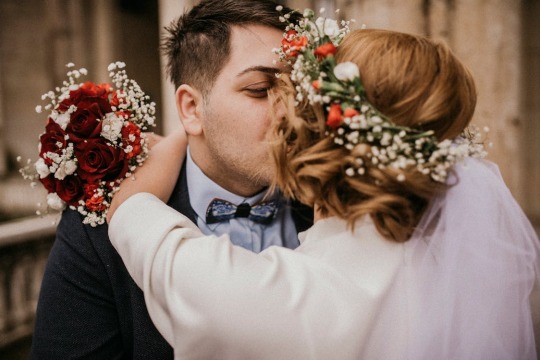Don't wanna be here? Send us removal request.
Text
The Complexities and Dynamics of Arranged Marriage: A Modern Perspective

Arranged marriage, a tradition deeply rooted in various cultures around the world, has long been a subject of fascination, curiosity, and sometimes even controversy. While the concept might seem archaic to some, arranged marriages continue to thrive in many societies, albeit often evolving to accommodate modern sensibilities. In this essay, we delve into the complexities and dynamics of arranged marriage, exploring its historical significance, cultural variations, societal impacts, and the evolving attitudes towards this age-old institution.
Understanding Arranged Marriage
Arranged marriage, as the name suggests, is a union orchestrated by families or intermediaries, where the individuals involved often have little to no say in choosing their life partners. Unlike love marriages, where individuals typically meet, court, and decide to marry based on mutual affection, arranged marriages are founded on familial considerations, such as social status, financial stability, cultural compatibility, and familial alliances.
Historical Context
The practice of arranged marriage can be traced back thousands of years, with its origins deeply embedded in cultural, religious, and socioeconomic norms. In many ancient civilizations, marriages were strategic alliances between families, aimed at consolidating power, acquiring wealth, or preserving lineage. The concept endured through the centuries, adapting to changing social structures and norms.
Cultural Variations
Arranged marriage manifests in diverse forms across different cultures, each with its own rituals, traditions, and expectations. In some societies, such as India, Japan, and parts of the Middle East, arranged marriages are still prevalent, with families playing a central role in matchmaking. Conversely, in Western cultures, where individual autonomy is highly valued, arranged marriages are less common, though they do exist within certain immigrant communities.
The Role of Family and Community
Central to the institution of arranged marriage is the involvement of families and sometimes entire communities in the matchmaking process. Parents, relatives, and trusted intermediaries often take on the responsibility of finding suitable matches based on criteria deemed important for marital success. This involvement underscores the collective nature of marriage, where familial interests often supersede individual desires.
Navigating Tradition and Modernity
In recent decades, the dynamics of arranged marriage have undergone significant transformations, influenced by globalization, urbanization, and changing societal norms. While traditional arranged marriages were strictly arranged by parents without the consent of the individuals involved, contemporary arrangements often involve greater agency for the prospective partners. Many modern arranged marriages incorporate elements of compatibility testing, courtship, and mutual consent, blurring the lines between arranged and love marriages.
Challenges and Controversies
Despite its prevalence and adaptation to modernity, arranged marriage is not without its challenges and controversies. Critics argue that the practice can perpetuate gender inequality, restrict individual freedom, and lead to marital dissatisfaction and even abuse. Additionally, the pressure to conform to familial expectations and cultural norms can create immense stress for those involved, particularly for individuals who do not wish to participate in arranged marriages.
Gender Dynamics
Gender dynamics play a significant role in arranged marriages, with traditional notions of masculinity and femininity often shaping marital expectations and responsibilities. In many cultures, women are expected to prioritize familial harmony and obedience over personal autonomy, while men are tasked with providing for and protecting their families. These gendered expectations can influence the power dynamics within arranged marriages and contribute to inequalities.
Shifting Perspectives
Despite its challenges, arranged marriage continues to endure, albeit in evolving forms. In some cases, arranged marriages are celebrated for fostering stability, commitment, and familial bonds. Proponents argue that the involvement of families can provide valuable support and guidance, setting the foundation for successful partnerships. Moreover, arranged marriages are often viewed as a means of preserving cultural traditions and heritage in an increasingly globalized world.
Marriage Arrangement Aamboku
Conclusion
Arranged marriage, with its rich history and cultural significance, remains a complex and multifaceted institution. While traditional practices persist in many parts of the world, arranged marriages are also evolving to accommodate modern sensibilities and individual autonomy. As societies continue to grapple with questions of tradition, modernity, and individual rights, the institution of arranged marriage will likely remain a subject of fascination, debate, and adaptation. Ultimately, whether arranged marriage is perceived as a binding tradition or an outdated practice depends on one's cultural perspective and personal experiences.
#arranged marriage#omiai#nakodo#marriage in Japan#Japanese culture#Japanese traditions#Heian period#Edo period#Meiji Restoration#gender roles#matchmaking#cultural identity#cultural continuity#traditional values#modern values#parental involvement#marriage evolution#marriage attitudes#marriage future#marriage trends
4 notes
·
View notes